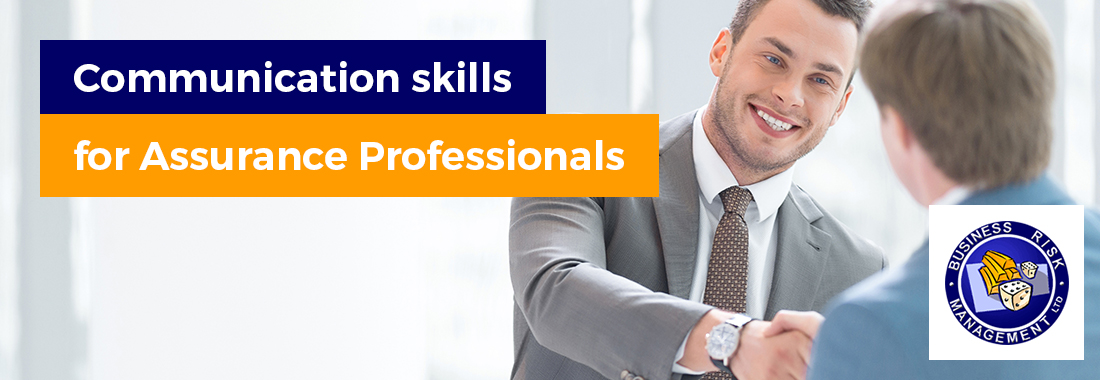Communication skills for Assurance Professionals

Benefits
Why you should attend
As assurance providers, you face difficult communications challenges. The aim is to provide confidence to management; and to generate improvements or changes if they are necessary.
You have to be very clear if things in the organisation are not working – and provide sufficient support evidence.
You have to reach a shared understanding with specialists and general managers of what needs to change – and why it matters.
You have to find ways to convince experienced and powerful people to do things differently.
These responsibilities and challenges require a wide variety of skills, competencies and abilities.
Strong communication and presentation skills are essential in this highly challenging environment, whether this is facilitating workshops or
negotiating with management or communicating your ideas in the form of reports.
After completing this course you will be able to
- APPLY the techniques of effective communications
- ENGAGE more positively with senior management
- DELIVER proven communication approaches
- DEVELOP all your interpersonal skills more efficiently
- ENHANCE negotiation techniques
- INFLUENCE management more effectively
- IMPROVE your presentation skills
- DELIVER more successful outcomes
- APPLY proven listening skills
Who should attend
Who should attend
- New auditors
- More experienced auditors
- Risk Managers
- Other assurance professionals who would like to improve their communication skills
Course Details
Course Level
- This is an intermediate level course and delegates should ideally have at least 12 months experience in Internal Audit (or other assurance roles) to attend.
- Delegates should have a good educational standard and ideally a professional qualification
- No advance preparation is required
- Delivery method – On-line-live (with exercises and case studies to provide practical application of the tools and techniques)
CPE credits
Business Risk Management Ltd is a certified training provider and participants will earn 9 CPE credits by attending this course
Modules
Day 1 Effective communication – the goal of all
auditors
The importance of effective communication
- Research results from the IIA
- Why communication is inherently difficult
- Why internal auditors need to spend time planning their approach
- The need for regular and consistent communication
- Why communication is successful when the intended recipient takes the desired action.
- How to ensure success
- The need for many and varied communication channels
- The key aspects
- Encoding – giving the ideas and facts as a message
- Decoding – evaluating the message
- Perception – Why the message received may not be the one intended
- Filtering – picking out the key issues
- Feedback – to achieve mutual understanding
- Exercise 1 Chinese whispers
The benefits of good communication
- Any improvement in communication will improve the overall effectiveness of internal audit Stakeholders will better understand the role and responsibilities of internal audit.
- Audit managers and lead auditors will be able to manage
- engagements better
- Productivity and effectiveness should improve
- Auditors will reduce errors and problems in communications and therefore increase credibility
- The profile and value of the function will be enhanced
- Exercise 2 The communication challenge
The need to engage senior management
- Senior management are extremely busy
- Risks and controls may not be top of their agenda.
- The tone at the top will influence everyone else
- The need to demonstrate the positive benefits of managing risk and having effective controls
- Present the benefits of better risk management in ways which management can identify.
- Hold a meeting with the CEO and influential members of the Board (with a clear but short agenda).
- Go prepared with a succinct presentation and some practical recommendations.
- Use the opportunity to argue for the importance of tone from the top.
Point out the key risks facing the organization, and show how a well-designed control structure can help - Don’t expect everything to be achieved with just one meeting.
- Be prepared to keep going back with the same messages until they are not only accepted, but also acted on.
- Exercise 3 The senior management meeting (role play)
Characteristics of effective communication
- Why all communications should be :-
- Accurate providing facts and evidence
- Objective – fair, impartial, and unbiased
- Clear – using simple language; avoiding jargon and technical terms
- Concise – avoiding unnecessary information or too much detail
- Constructive – useful, positive, and well meaning
- Complete – including all significant and relevant information
- Timely
- Organised and structured
- Logically sequencedExercise 4 The communication dilemma
- Interpersonal skills for auditors
- Diplomacy
- Open -mindedness
- Persuasiveness
- Negotiation ability
- Self motivation and self confidence
- Decision making ability
- Flexibility and ability to co-operate
- Time management
- Flexibility and ability to co-operate
- Self control
- Practicality
- Results focus
- Exercise 5 Interpersonal skills
Time management
- The barriers to effective time management for auditors
- Not receiving information in a timely manner
- Managers not available to meet you
- Trying to cover too much
- Being side tracked by issues identified during the audit
- Unrealistic fieldwork schedule
- Staff lacking experience
- Dealing with the issues – tips and advice
- Exercise 6 Time management exercise
Day 2 Influencing and convincing management
Influencing
- Influencing styles
- Directive
- Persuasive reasoning
- Collaborative
- Visionary
- Responses to influencing
- The customer agrees with your views and commits to promoting it
- The customer agrees but only because they value the relationshipo The customer agrees verbally but has no real buy-in
- The customer opposes your views
- Dealing with the responses
- Exercise 7 Influencing exercise
Negotiation
- Why negotiation is much more than persuasion
- The need to reach agreement
- Negotiating during each audit phase
- Planning
- Fieldwork
- Reporting
- Follow up
- Trying to achieve a win-win situation
- The problems with win-lose situations
- Negotiation strategies
- Dividing the ‘pie’
- Making ‘the pie’ bigger
- Determining the objectives
- What are the boundaries?
- How long do you have?
- How will you open and close the negotiation?
- What might the other party ask?
- Is the other party empowered to make the decision?
- What information do you need?
- Exercise 8 Practical negotiation
Listening – the most important audit skill?
- Why listening does not just involve the ears
- The 6 elements of listening (The Hurier model)
- Hearing
- Understanding
- Remembering
- Interpreting
- Evaluating
- Responding
- Types of listening
- Comprehensive (getting as close as possible to the intended meaning)
- Paying close attention to all the information
- The words spoken
- The tone of the voice
- The body language
- Critical (forming judgements about what was said)
- Distinguishing between facts and opinions
- Evaluating the basis of statements Assessing the logic of arguments
- Relationship (to help improve the relationship)
- Exercise 9 Listening exercise
Effective Presentations
- The need for impact
- Deciding the form of presentation
- Use of visual aids
- How many notes should you use
- Use of humour – is this a good idea?
- Education or decision seeking – the different techniques
- How to combat nerves
- Keeping in control
- How to deal with questions
- Keeping the flow
- Use of simple language
- How to keep the audience’s interest
- Use of props
- Anticipating the questions
- Considering what the audience will expect
- Assessing the results
- Getting feedback
- Exercise 10 – Delegates prepare and deliver a 2 minute presentation on a subject of their choosing
About Phil Griffiths
Phil Griffiths, FCA

Phil Griffiths is founder and Managing Director of Business Risk Management Ltd.
A Chartered Accountant, he has over 30 years experience in risk management, Corporate Governance, internal audit and fraud prevention as practitioner, professional adviser, facilitator and trainer.
His areas of specialism are:
- Assisting Senior Management to identify, manage and then exploit the risks within their business via facilitated business risk management programmes
- Helping Internal Audit functions to implement world class standards.
- Developing fraud prevention, detection and investigation programmes
- Training both private and public sector organisations in all the above disciplines.
He has extensive experience of the European, Asian, Middle Eastern, and African markets having trained professionals from over 1000 organisations in these regions during the past 15 years
He has extensive experience of managing and auditing major International projects. He has also direct experience of negotiating major contracts (including the largest mobile telecommunications contract in the world at the time)
Phil has developed strategic alliances with professional bodies and world renowned training companies, to deliver training and consultancy services across Europe, Asia, the Middle East and Africa.
He has developed over 300 training courses on all aspects of internal audit, risk management and fraud and delivered them across the globe.
He has led risk management programmes for more than 120 private and public sector clients tailored specifically to include facilitated workshops, development of risk strategies and assistance with implementation
He is an accomplished author. His book ‘Risk Based Auditing’ is an international best seller and his new book ‘Enterprise Risk Management – the key to business success’ is receiving much acclaim
Phil has published research into many aspects of internal audit and risk management best practice, including “Strategic Risk management” “The Need to Co-ordinate Assurance Providers” and “The Expectations of Chief Executives towards Internal Audit and its future”
He is recognised as an accomplished and charismatic facilitator, trainer and lecturer and is in continual demand to speak at the most prestigious events on risk management, internal audit and fraud.
Schedule Overview
Course Fee and Timings
- First delegate: USD 1300 (GBP 1000)
- Second delegate: 15% discount
- Third delegate and over: 25% discount
Fee includes comprehensive course materials. The course will consist of three 1.5 hour sessions each day.
The course will consist of three 1.5 hour sessions with the following UK timings
- 9.00 – 10.30 Session 1
- 10.30 – 10.45 Break
- 10.45 – 12.15 Session 2
- 12.15 – 13.00 Break
- 13.00 – 14.30 Session 3

